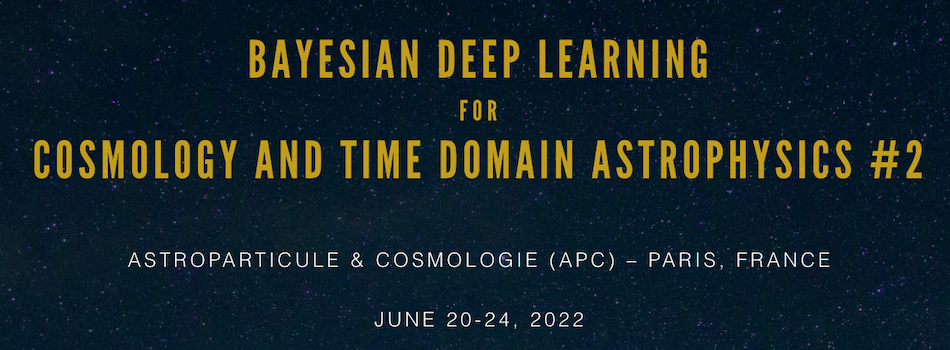Orateur
Description
The idea of using Gravitational Wave (GW) detections to learn about the characteristics of our universe was first proposed by Schutz (1984), where they proposed GW signals from compact binary coalescences (CBCs) can be used to infer cosmological parameters of the universe. This is because GW signals give us information about the calibrated luminosity distance of the event without the use of the cosmological distance ladder or any prior knowledge or assumptions of the universe. To estimate the cosmological parameters, such as the Hubble constant ($H_{0}$), we implement a machine learning approach, called Normalizing Flows (NFs), which allows for a fast computation of the posterior distributions over one or multiple cosmological parameters, conditioned on the observed GW signals detected by the LIGO/VIRGO ground based interferometric detectors. Normalizing Flows are generative models, which allow to sample from and evaluate complex probability distribution functions by learning how to map points from the complex distribution to a simple one, such as a normal distribution. In this work we present CosmoFlow, a python based code which trains a Normalizing Flow model with simulated GW events, generated with varying values of the cosmological parameters, outputting the evaluated posterior distribution over the parameters.
